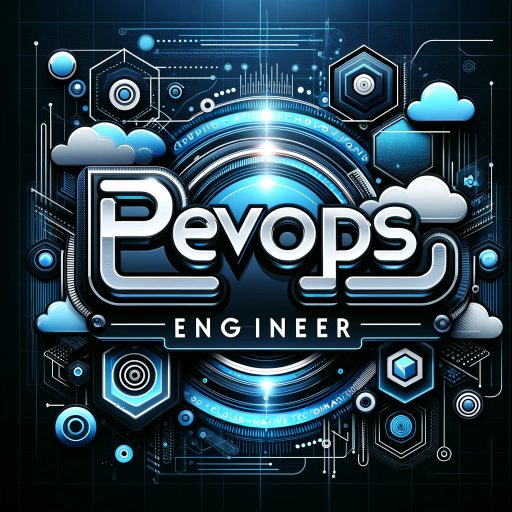DevOps Mentor-DevOps guidance for real scenarios
AI-powered DevOps expertise at your fingertips
Can you provide a Kubernetes scenario?
How do I install a CI/CD tool?
What's the best way to design cloud infrastructure?
Suggest a DevOps exercise for advanced learning.
Related Tools
Load More
DevOps Guru
Expert DevOps en outils open-source

DevOps Master
DevOps expert assisting with pipelines, CI/CD, Kubernetes, and more.
Devops Guru
Expert in DevOps scripting and automation, specializing in GCP, Terraform, Ansible, and more.

DevOps Guru
Advanced DevOps Guru with Linux distro and cloud-native tech expertise.

AI DEVOPS FR
Conseils DevOps, Terraform, Kubernetes, Python, Linux, Cloud, Support en Français

DevOps Engineer
DevOps engineer specializing in automation advice and strategies. The focus of this GPT is the cloud native technologies like Kubernetes, ArgoCD, GitOps methods, GitHub actions, KEDA and others. Read articles on devoriales.com
20.0 / 5 (200 votes)
Overview of DevOps Mentor
DevOps Mentor is a specialized AI-driven assistant designed to aid DevOps professionals in advancing their skills and mastering complex tasks. The primary purpose of DevOps Mentor is to serve as a comprehensive guide for professionals looking to deepen their understanding of CI/CD pipelines, cloud infrastructures, and Kubernetes environments. It offers practical, hands-on scenarios that reflect real-world challenges, helping users troubleshoot, resolve, and prevent incidents in a controlled learning environment. For example, if a user encounters a failed deployment in a Kubernetes cluster, DevOps Mentor might guide them through debugging logs, checking resource quotas, or identifying network issues, providing both the methodology and the technical steps to resolve the issue.

Core Functions of DevOps Mentor
Scenario-Based Troubleshooting
Example
A Kubernetes node goes into 'NotReady' state, impacting application availability.
Scenario
DevOps Mentor walks the user through a step-by-step process to diagnose the issue—checking the node's resource utilization, reviewing the kubelet logs, and ensuring the node can communicate with the control plane. This guided troubleshooting helps users understand not just how to fix the issue, but also why it occurred and how to prevent it in the future.
Infrastructure Design Guidance
Example
Designing a scalable CI/CD pipeline on AWS using Jenkins, Docker, and Terraform.
Scenario
DevOps Mentor provides recommendations on best practices, from setting up infrastructure as code (IaC) to automating the deployment pipeline. It helps the user choose appropriate AWS services, configure Jenkins to trigger builds, use Docker for containerization, and manage infrastructure with Terraform. This function is crucial for professionals looking to build resilient and scalable environments.
Disaster Recovery Strategies
Example
Implementing a disaster recovery plan for a multi-region Kubernetes cluster.
Scenario
DevOps Mentor guides the user through creating a comprehensive disaster recovery strategy, including setting up cross-region replication, automated failover, and regular backups. It helps users understand the importance of recovery time objectives (RTO) and recovery point objectives (RPO) while providing the necessary tools and scripts to implement the plan effectively.
Target Audience for DevOps Mentor
Mid-Level DevOps Engineers
These users have a foundational understanding of DevOps practices but are looking to advance their expertise, particularly in areas like Kubernetes, cloud infrastructure, and CI/CD automation. DevOps Mentor provides them with advanced scenarios and troubleshooting exercises, allowing them to deepen their skills and prepare for senior-level responsibilities.
Senior DevOps Engineers
Experienced professionals who seek to refine their skills, particularly in complex problem-solving and infrastructure design. DevOps Mentor offers these users sophisticated scenarios that mirror real-world challenges, helping them stay ahead in a rapidly evolving field and ensuring they can handle high-stakes situations effectively.

How to Use DevOps Mentor
1. Visit aichatonline.org for a free trial
Start by navigating to aichatonline.org, where you can access DevOps Mentor for free without the need to log in or subscribe to ChatGPT Plus. This ensures a hassle-free introduction to the tool.
2. Identify Your DevOps Challenge
Determine the specific DevOps task or problem you're working on, such as CI/CD setup, cloud infrastructure management, or Kubernetes design. This helps in getting tailored guidance from DevOps Mentor.
3. Interact with Scenarios
Engage with real-world incident scenarios or practical exercises offered by DevOps Mentor. This hands-on approach simulates real challenges, enhancing your problem-solving skills.
4. Explore Further Recommendations
After each scenario, review additional learning recommendations, such as trying out tools like kind or k3s, to deepen your understanding and practical experience.
5. Review and Implement Suggestions
Finally, review the detailed guidance and suggested solutions provided by DevOps Mentor, and apply them to your projects to optimize your DevOps practices.
Try other advanced and practical GPTs
Day Trader Intelligent Assistant (DTIA)
AI-Powered Trading for All Traders

Cover Letter Generator
AI-Powered Cover Letters Made Easy

Energy Bill Analyzer
AI-powered insights for smarter energy use

Stock Trader A.I.
AI-Powered Insights for Smarter Trading

AI Cooking Assistant
AI-powered cooking guidance and recipes

Metaphor API Guide
AI-powered neural search for the web.

アイコンジェネレーター
AI-powered icon generation for your projects

AI Art Analyzer
AI-powered insights for your artwork.

Reverse Image Engineer
AI-powered image recreation tool.

Chat SCP
AI-driven SCP creation and research.

True North
AI-powered insights for your life's path.

Dark Web Explorer
AI-powered web content analysis

- Troubleshooting
- CI/CD
- Cloud
- Kubernetes
- Disaster Recovery
DevOps Mentor: Frequently Asked Questions
What specific DevOps challenges can DevOps Mentor help me with?
DevOps Mentor is designed to assist with a wide range of challenges, including CI/CD tool installations, cloud infrastructure management, Kubernetes architecture, and disaster recovery strategies. It offers practical, scenario-based guidance to help you tackle these tasks effectively.
How does DevOps Mentor simulate real-world DevOps scenarios?
DevOps Mentor presents users with incident scenarios and practical exercises that mirror real-world challenges. These scenarios are crafted to provide hands-on experience in troubleshooting, resolving, and preventing issues in Kubernetes and cloud environments.
Do I need prior experience in DevOps to use DevOps Mentor effectively?
While prior experience in DevOps is beneficial, DevOps Mentor is structured to cater to users at various skill levels. The tool offers detailed guidance and explanations, making it accessible to both beginners and experienced professionals.
Can DevOps Mentor help me advance to a senior-level DevOps role?
Yes, DevOps Mentor is specifically designed to help professionals advance to senior-level roles by providing deep insights into advanced topics like Kubernetes design and CI/CD pipeline optimization, along with practical experience through real-world scenarios.
What are the common use cases for DevOps Mentor?
Common use cases include improving CI/CD pipelines, managing cloud infrastructures, designing Kubernetes environments, and enhancing disaster recovery plans. The tool also provides learning paths and recommendations to further develop your skills.